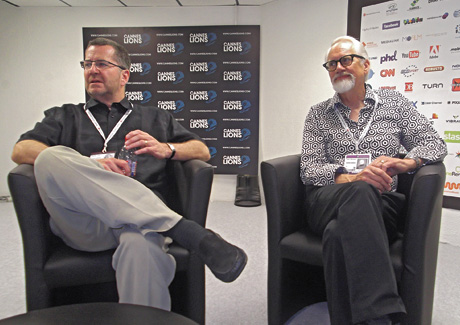W+K Unplugged: Insights into the making of a successful independent
Arati Rao caught up with Dan Wieden, co-founder and global executive creative director, Wieden + Kennedy, and recipient of the Lion of St Mark award at Cannes Lions 2012; and Dave Luhr, chief operating officer of the independent. Edited excerpts:
by Arati Rao

To continue enjoying this content, please sign in below. You can register for free for limited further access or subscribe now for full access to all out content.
Sign In
Trouble signing in?
Register for free
✓ Access limited free articles each month
✓ Email bulletins – top industry news and insights delivered straight to your inbox
Subscribe
✓ All the latest local and global industry news
✓ The most inspirational and innovative campaigns
✓ Interviews and opinion from leading industry figures
